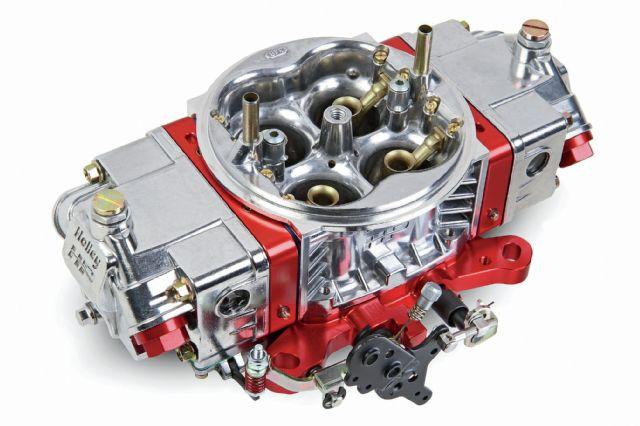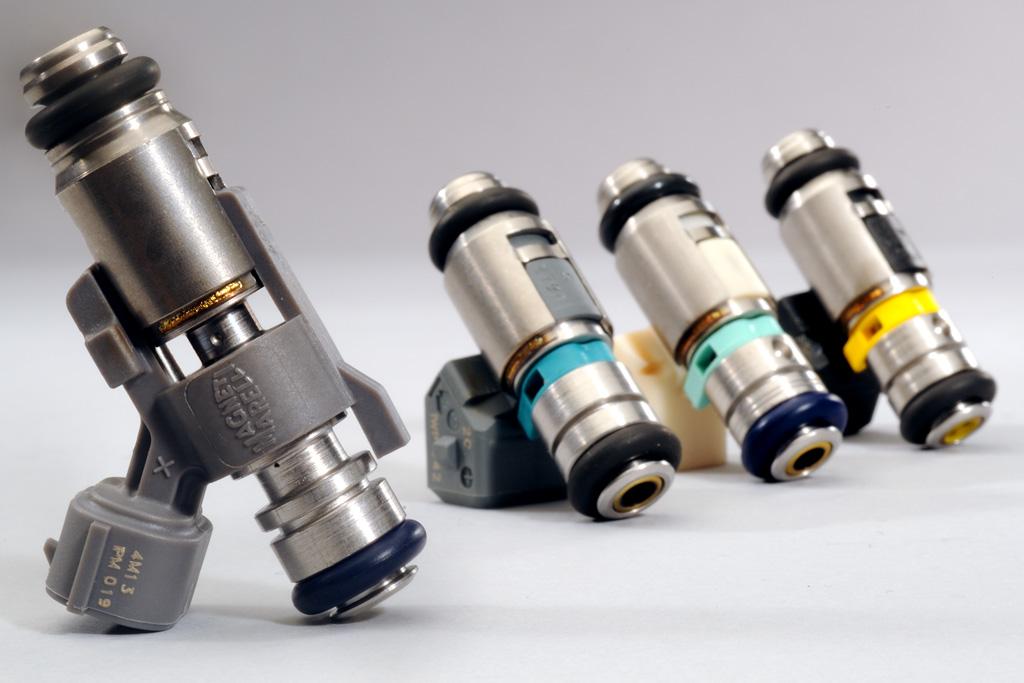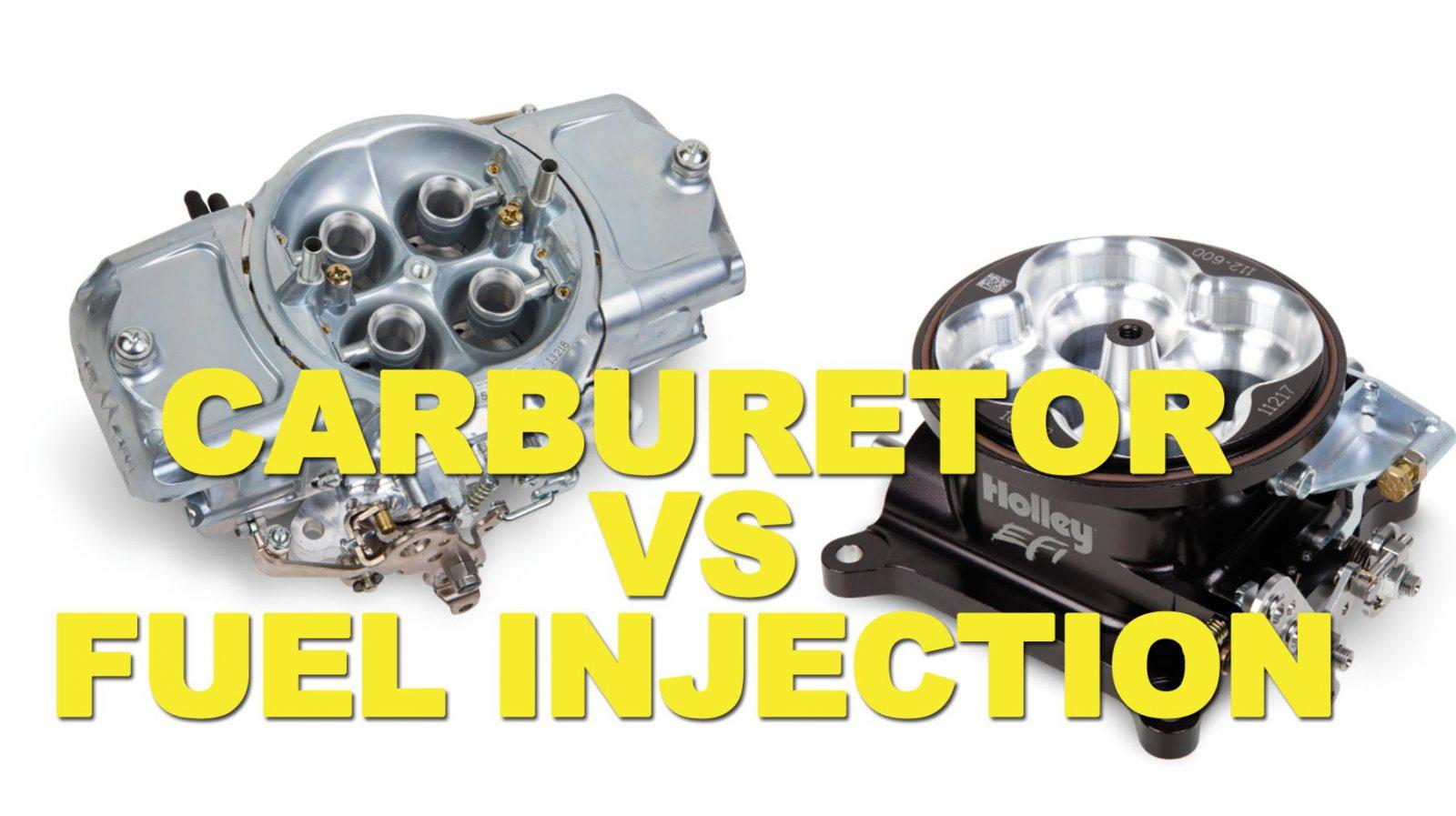Car enthusiasts always have different opinions about the carburetor vs fuel injection debate. Some people think that only a carburetor does the engine performance justice while others are convinced with the utility of the fuel injection.
So which one is the best option for you? Let’s follow along with Car From Japan!
Contents
Carburetor vs Fuel Injection: What Are They?
The carburetor and fuel injection are the systems that feed fuel and air into the engine cylinders. The combustion of gas releases energy into the pistons and combustion chambers.
The early carburetors used to utilize air flow or fuel vapors for ignition. The later versions used a different principle and supplied the same amount of air and fuel into the intake.
This system can’t monitor the air-to-fuel ratio for individual cylinders. But, carburetors are long-lasting and are widely used in racing cars.
The carburetor system lost its popularity in the early 1990s and fuel injection emerged into the scenario.
The fuel injection system is available in both mechanical and electronic versions and for both diesel and gasoline engines.

There are two different types – port fuel injection and direct injection systems. The second one is the advanced version that can handle two- or four-stroke engines and deliver fuel directly into the cylinders.
Based on the engine load conditions, this system will allow you to perfectly calculate the amount of fuel and air required and then release it to the cylinders. It will constantly adjust the amount based on the latest engine report.
Carburetor vs Fuel Injection: The Merits and Demerits
The systems have their pros and cons. You can find out the better option by comparing their functionality against several parameters.
Power and Performance
A fuel injection system with electronic controls provides more accurate results in terms of delivering air and fuel into the cylinders. As it can supply the required amount, the engine functions at its optimum power and provides the best performance.
On the contrary, carburetors can’t calculate the accurate amount. They cannot adjust when there is a change in the atmospheric pressure or fuel temperature.
SEE MORE:
Emissions and Fuel Economy
Again, the injection system wins in this sector. It can precisely calculate the required amount of fuel and air and adjust it according to the changes in several parameters, resulting in less fuel consumption, higher fuel-efficiency, and fewer carbon emissions.
Carbonators can’t yield the same results because they deliver the fuel-to-air ratio on an average, not subject to the engine conditions.

Maintenance Costs
The carburetor system will have the upper hand in this section. You can even rebuild the entire carburetor system in your garage! All you need are some simple hand tools, a can of carburetor cleaner, and some spare parts.
On the other hand, fuel injection is a complex system. If the system burns out, you will need outside help to tow the car to a repair shop. Besides, repairing an injection fuel system requires professional skill.
Carburetor vs Fuel Injection: Which One Is Better?
It seems that fuel injection is the better option. Although most small engines use the carburetor system for its simplicity and cheap prices, and less maintenance costs, fuel injection is the perfect choice for the modern vehicles for better performance, lower emissions, and fuel economy.
FAQs on Carburetor vs Fuel Injection
-
Which system is more fuel-efficient: carburetor or fuel injection?
Fuel injection is generally more fuel-efficient than carburetors. It delivers fuel with greater precision, optimizing the air-fuel mixture for improved combustion, which results in better fuel economy.
-
Which system produces fewer emissions: carburetor or fuel injection?
Fuel injection tends to produce fewer emissions compared to carburetors. It allows for precise control over the air-fuel mixture, leading to cleaner and more efficient combustion, which reduces harmful emissions.
-
Are there any situations where carburetors are still preferred over fuel injection?
Carburetors are still preferred in some niche applications, such as vintage or classic car restorations, small engines like lawnmowers, and certain off-road vehicles where simplicity and ease of maintenance are prioritized.
-
Can you retrofit a carbureted engine with fuel injection?
It is possible to retrofit a carbureted engine with a fuel injection system. This conversion can improve fuel efficiency, emissions, and overall performance. However, it can be a complex and costly process.
-
Is fuel injection more reliable than carburetors?
Fuel injection systems are generally considered more reliable than carburetors because they are less prone to problems like fuel flooding, vapor lock, and cold start issues. They also offer better adaptability to changing conditions.
-
Which system is more common in modern vehicles: carburetor or fuel injection?
Modern vehicles almost exclusively use fuel injection systems due to their advantages in fuel efficiency, emissions control, and performance. Carburetors have become obsolete in new car production.
Check out this video from Summit Racing to learn what is the difference between a carburetor and fuel injection!
-
Can carbureted engines be as environmentally friendly as fuel-injected engines?
It’s challenging for carbureted engines to match the environmental friendliness of fuel-injected engines. Fuel injection’s ability to precisely control fuel delivery and combustion helps reduce emissions, making it more environmentally compliant.
-
Can you switch between carburetors and fuel injection on the same vehicle?
Converting a vehicle from carburetion to fuel injection or vice versa is possible but involves significant modifications to the engine and its control systems. It’s typically done as part of customizations or engine swaps by experienced mechanics.
-
Which system is more adaptable to performance upgrades and modifications?
Fuel injection systems are generally more adaptable to performance upgrades and modifications because they offer precise control over fuel delivery and can adjust to changes in engine parameters.
-
Do carburetors or fuel injection systems require more extensive tuning for optimal performance?
Carburetors typically require more extensive tuning to achieve optimal performance compared to fuel injection systems. Fuel injection systems can adjust automatically to varying driving conditions, reducing the need for constant tuning.
Final Words
In the debate of carburetor vs fuel injection, fuel injection emerges as the superior choice for modern vehicles. It offers precise fuel delivery, improved efficiency, reduced emissions, and better performance compared to carburetors.
While carburetors have a historical significance, fuel injection’s advanced technology aligns with contemporary demands for cleaner, more fuel-efficient, and environmentally responsible vehicles.
As automotive technology continues to evolve, fuel injection remains at the forefront, making it the preferred option for optimizing both engine performance and environmental impact.




Very good tips please keep it up
this info has been so useful tanx a lot. i have been experiencing stumbling during acceleration but i never had a single idea of what could be the course to this. but with this info, i will ask my mechanic to check my fuel injector.
I have a Tata indigo 1.4 I want to change it to carburetor what do i need please which car headtop can i use.
Fuel injection for petrol engines is fine in new cars under warranty, but exorbitantly expensive to repair or replace. Fuel injection is not new, German aircraft were so fitted in the late 1930`s. Why is this system so expensive today ? as it has existed for 70 years.
Fuel injection (petrol) is not new, German aircraft were so fitted in the late nineteen thirty`s. Why then is a fuel injection system so expensive to repair or replace ? as it has been around for over 70 years.